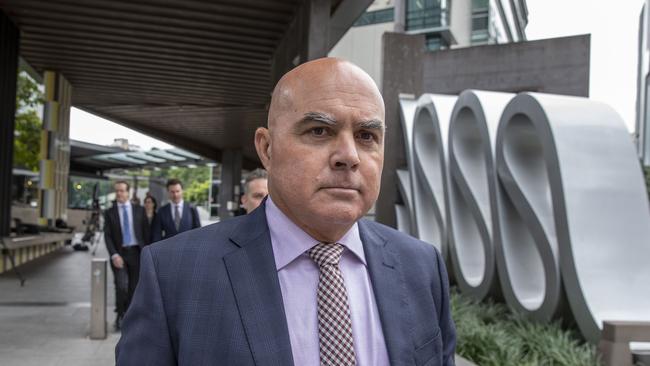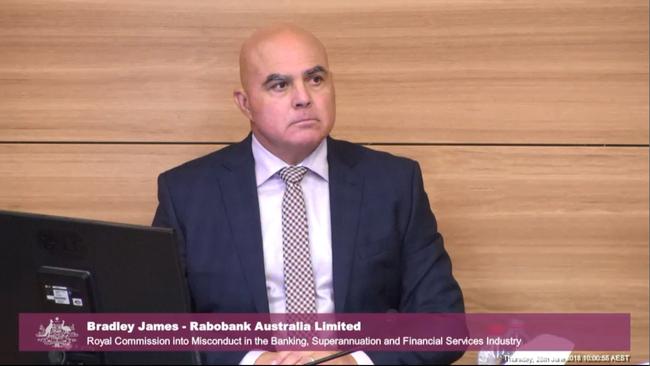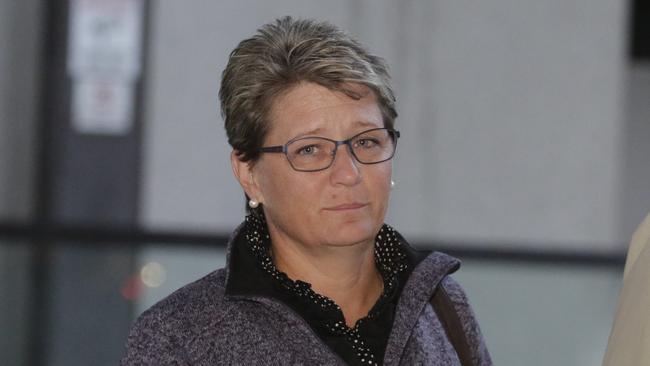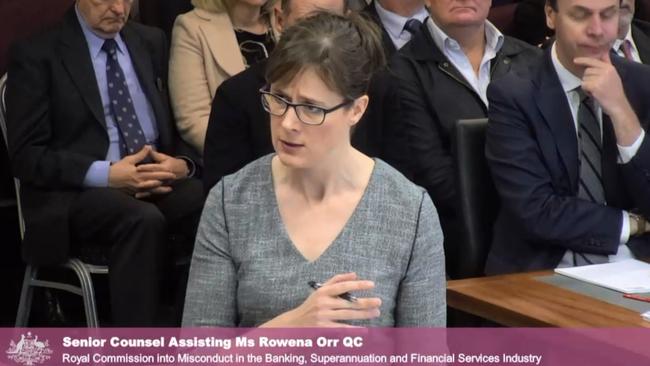Banking royal commission: Rabobank concedes sales-based bonus policies ‘fall short’ of rules
Australia’s largest rural lender has conceded it has policies not compliant with rules aimed at delinking sales targets and pay.

Australia’s largest rural lender Rabobank has admitted it has policies that will “fall short” of rules designed to stop banker salaries being driven by sales targets, as required by the industry lobby group the Australian Banking Association.
Under questioning at the royal commission on Thursday, Rabobank regional manager Bradley James said the group’s bankers were “still incentivised to grow our business through loan sales”.
Last year, former head of the Australian Public Service Stephen Sedgwick called for banks to end the tie between what a banker sells and how much they are paid, among 21 recommendations stemming from a year-long inquiry. The Australian Banking Association told their member banks to adopt all the recommendations.
Counsel assisting Rowena Orr asked Mr James if Rabobank was not compliant with the Sedgwick recommendations considering that sales were still the “primary driver” of banker pay at the lender. Mr James agreed the bank was not compliant and he was unable to say what changes were going to be made to align the bank to the recommendations by the 2020 deadline. “The current system would fall short of that, I would suggest,” Mr James said.

In a report compiled by former auditor-general Ian McPhee, who was overseeing the banking sector’s implementation of the Sedgwick proposals, Rabobank by the end of last year said it had “full alignment” of recommendations relating to bonuses for retail bankers and third party payments, along with proposals for performance management and culture and conduct, including that of their senior and mid-level executives. Rabobank said it had “some alignment” to proposals aimed at overhauling retail bank staff scorecards. That survey was “based on self-assessment by individual banks”, Mr McPhee said in his final report.
The admission came after the royal commission heard the tale of how a family of Queensland farmers ended up $1 million worse off after they were forced repay Rabobank more than they had borrowed, after being encouraged into a massive property with a $3.7m loan by a banker who was set annual lending targets.
Follow the banking royal commission hearings live here
Rabobank is the local arm of the global lender, which is based in the Netherlands. It has more than 60 branches operating in rural areas and serves more than 30,000 customers, who are primarily agribusiness customers.
The royal commission on Wednesday heard Wendy Brauer, a grazier from Queensland who runs cattle 280kms south of Rockhampton, had been lured back to Australia from the US after a Rabobank banker emailed them about the opportunity to buy a large property, known as Jamberoo, for $3m.

The Rabobank manager turned out to be representing not only the Brauers, but also another family interested in buying part of the Jamberoo lot, and also representing the vendor of the policy.
Mr James told the royal commission bankers at Australia’s largest rural lender were set targets of $15 million for gross rural lending each year. While bankers had to disclose if they were working with more than one party to a deal, Mr James said it “must have been overlooked” in this case.
Mr James said he had “absolutely no problems” with the financial targets given to bankers as there was a requirement for bank managers to “lend sustainably”.
But he did concede a banker injecting himself into a possible land sale to a customer was “not something I would do”. “It is something I would encourage our managers to exercise caution on,” he said, noting that in this case the banker should not have done it.
Ms Brauer was sold the plot of land in late 2009 for about $2.8m with a loan with increased headroom. But she was then offered an increased limit on the loan to buy new livestock and signed for a total of $3.7m of credit.
The area was hit with severe floods during the 2010-11 flooding which devastated Queensland, and Ms Brauer lost a tenant on the property who was paying an annual rent of $170,000.

Rabobbank then told Ms Brauer the family needed to repay $3m over two years in order to access the $300,000 it had earmarked to buy cattle. The family had a number of meetings with Rabobank and were granted an extension to mid-2014, but were still unable to repay the $3m.
Finally, Ms Brauer struck a deal to sell the property for not less than $2m by the end of 2015. Jamberoo ended up going for $2.4m, but Ms Brauer still had more than $1m to repay.
At first, Rabobank did not admit that its dealings with the Brauers fell short of community expectations or represented an instance of misconduct. However, a secondary revised submission to the royal commission was made reversing that decision.





